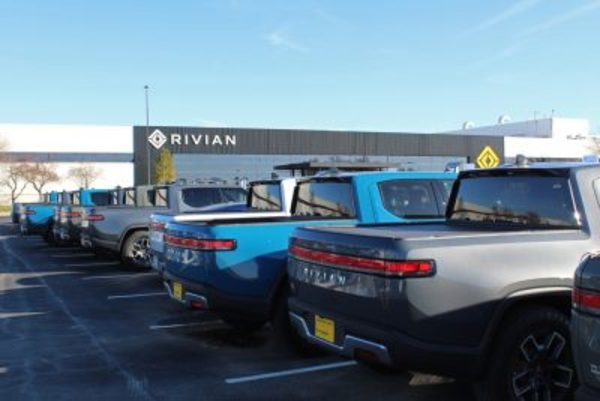Rivian, the electric vehicle start-up that had a blockbuster IPO in November 2021 by raising $13.7 billion, has found longer-term support in its partnership with Amazon that could provide the buoyancy needed to ride out market volatility, reported CNBC.
Rivian isn’t just any electric vehicle manufacturer. It’s a company that is devoted entirely to large-scale EVs by way of trucks, SUVs, and vans with a focus on outdoor adventure use. The company was founded in 2009 and gained many followers and financial assistance in 2019 when it secured a $700 million deal with Amazon and a $500 million deal with Ford.
Plans with Ford fell through, but Amazon’s partnership has only grown, with the tech giant committing to 100,000 custom-built electric vans that would help it meet its electrification plans for its last-mile fleet by 2040 at the latest. It’s a commitment that could very well help the EV start-up weather the uncertainty and volatility in the months ahead and comes at a time when economic slowdown typically impacts smaller companies the most.
“When Amazon invested in them… but more importantly, put a commitment to buy all of those vehicles from them, they changed the market dynamic around that company,” explained Mike Ramsey, auto and smart mobility analyst at Gartner.
Some of the first electric vans are already out on roads, with the first models completed last month, and are delivering in cities like Chicago, Baltimore, Seattle, and Phoenix.
For investors looking to capture the potential growth of major EV producers globally, the KraneShares Electric Vehicles and Future Mobility ETF (KARS ) offers a good solution.
KARS invests in many familiar car companies such as Rivian, Tesla, Ford, Mercedes-Benz, GM, BMW, and others and major Chinese EV manufacturers such as Xpeng, Nio, and BYD, some of the biggest companies in the global electric vehicle industry.
KARS measures the performance of the Bloomberg Electric Vehicles Index, which tracks the industry holistically, including exposure to electric vehicle manufacturers, electric vehicle components, batteries, hydrogen fuel cells, and the raw materials utilized in the synthesis of producing parts for electric vehicles.
The index has strict qualification criteria. Companies must be part of the Bloomberg World Equity Aggregate Index, have a minimum free-float market cap of $500 million, and have a 90-day average daily traded value of $5 million.
Rivian is carried within the fund at a 1.77% weighting and KARS has an expense ratio of 0.70%.
For more news, information, and strategy, visit the China Insights Channel.

